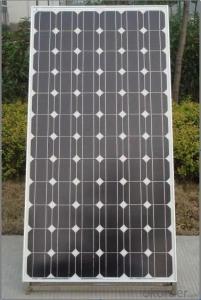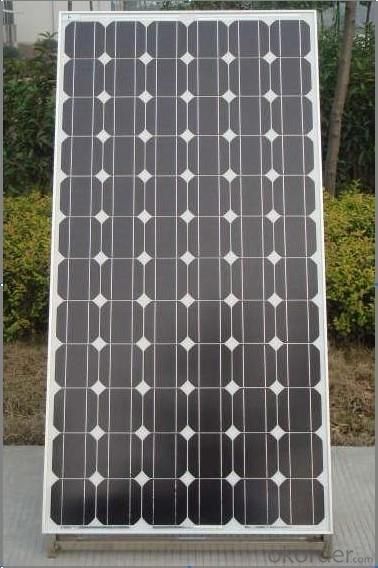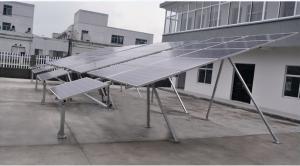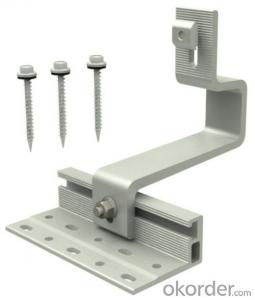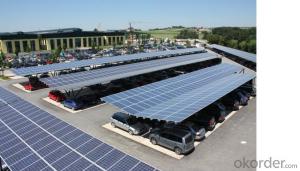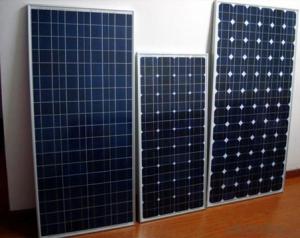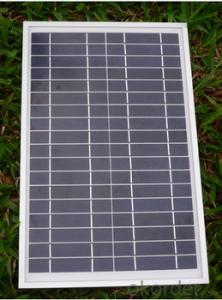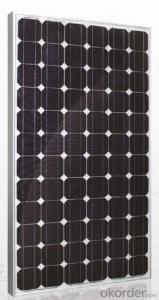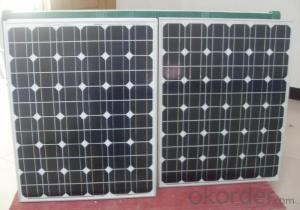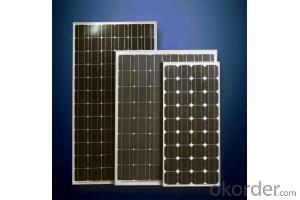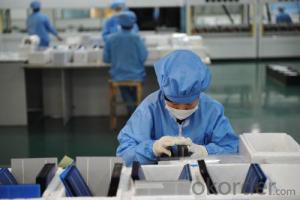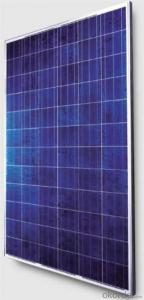Btu Solar Vacuum Tube Polycrystalline and Monocrystalline Solar Modules
- Loading Port:
- Tianjin
- Payment Terms:
- TT OR LC
- Min Order Qty:
- 1 pallet
- Supply Capability:
- 100000000 pallet/month
OKorder Service Pledge
OKorder Financial Service
You Might Also Like
Specifications:
solar panels from 5W--300W, made of TAIWAN MOTECH brand cells,with CO in TAIWAN,Mono and Poly with VDE,IEC,CSA,UL,CE,ISO.
We import solar cells from Taiwan Motech brand, with this CO in taiwan and our CSA certification,we can still sell goods to Anti-dumping areas like USA. Our main products are solar panels, off grid and on grid solar home systems , solar street lighting systems, solar water heating system,solar pump,solar attic fan, solar DC LED lights and solar DC refrigerators.
Certificates : ISO, CE, VDE IEC, MCS, CSA-UL, CEC.
Delivery time: sample 10days, order 25-30days.
Sample: charged.
Payment term: T/T 30% as deposit, 70% before shipment. Or irrevocable L/C at sight.
Trade term: FOB Shenzhen or CIF destination seaport or Airport.
Characteristics:
I.Solar Cell : High efficiency crystalline solar cell. Even if under the weak light, the solar module can produce maximum power output.
II.Tempered glass (toughened glass): Anti-reflecting coating and high transmission rate glass increase the power output and mechanical strength of solar module.
III.EVA and TPT: Using high quality EVA and TPT to prevent destroying and water.
IV.AI frame: Without screw, corner connection. 6 holes on the frame can be installed easily.
V.Junction box: Multi function junction box with water proof.
VI.Long lifetime: ≥25 years; Less power decrease.
VII.Good performance of preventing from atrocious weather such as wind and hails.
VIII.Resisting moisture and etching effectively, not effected by geology.
IX.The certificate issued by international authority: UL, TUV, IEC, VDE, CE.
Quality and Safety
1. Rigorous quality control meets the highest international standards.
2. High-transmissivity low-iron tempered glass, strong aluminium frame.
3. Using UV-resistant silicon.
4. IS09001/14001/CE/TUV/UL
Warranties
1. 10 years limited product warranty
2. 15 years at 90% of the minimal rated power output
3. 25 years at 80% of the minimal rated power output
Technical date :
ITEM NO.: | Poly 156*156 cell ,60pcs . Power range from 230Wp-260Wp | ||||||
Maximum Power(W) | 230 | 235 | 240 | 245 | 250 | 255 | 260 |
Optimum Power Voltage(Vmp) | 29.4 | 29.5 | 29.7 | 30.1 | 30.3 | 30.5 | 30.7 |
Optimum Operatige Current(Imp) | 7.83 | 7.97 | 8.08 | 8.14 | 8.25 | 8.37 | 8.48 |
Open Circuit Voltage(Voc) | 36.7 | 36.8 | 36.9 | 37.1 | 37.3 | 37.5 | 37.7 |
Short Circuit Current(Isc) | 8.52 | 8.59 | 8.62 | 8.65 | 8.69 | 8.73 | 8.78 |
Solar Cell: | 156*156 Poly | ||||||
Number of Cell(pcs) | 6*10 | ||||||
Name of Solar Cells | Polycrystalline Cell | ||||||
Size of Module(mm) | 1650*992*40/45/50 | ||||||
Cable & Connector Type | Pass the TUV Certificate | ||||||
Frame(Material Corners,etc.) | Aluminium-alloy | ||||||
Back sheet | TPT | ||||||
Weight Per Piece(KG) | 19.5KG | ||||||
FF (%) | 70-76% | ||||||
Junction Box Type | Pass the TUV Certificate | ||||||
Tolerance Wattage(e.g.+/-5%) | ±3%, or 0-3% | ||||||
Front Glass Thickness(mm) | 3.2 | ||||||
Temperature Coefficients of Isc(%) | +0.04 | ||||||
Temperature Coefficients of Voc(%) | -0.38 | ||||||
Temperature Coefficients of Pm(%) | -0.47 | ||||||
Temperature Coefficients of Im(%) | +0.04 | ||||||
Temperature Coefficients of Vm(%) | -0.38 | ||||||
Temperature Range | -40°C to +85°C | ||||||
Surface Maximum Load Capacity | 5400Pa | ||||||
Allowable Hail Load | 23m/s ,7.53g | ||||||
Bypass Diode Rating(A) | 12 | ||||||
Warranty | 90% of 10 years, 80% of 25 years. | ||||||
Standard Test Conditions | AM1.5 1000W/ 25 +/-2°C | ||||||
Packing | carton or pallet | ||||||
1*20' | 14 Pallets / 316pcs | ||||||
1*40'STD | 25 Pallets / 700pcs | ||||||
FAQ:
I..Will you focus on the safety of the goods during transportation?
Yes, Safety of the cargo is the primary element that we would consider on transportation.
II..How would guarantee the quality will meet the requirements of your clients?
Before shipment, we will have inspection for each batch of goods.
III..What certificates do you have?
IEC,UL,TUV,CSA,etc.
IV..Can you do OEM according to clients’ requirements?
Yes, we have our own brand while we can provide OEM service.
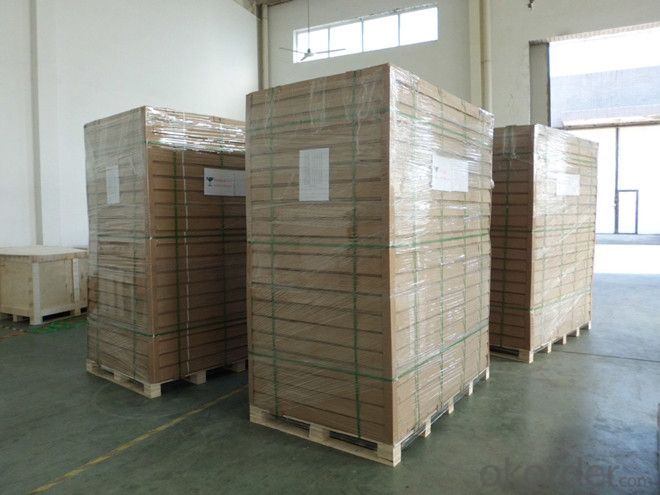
- Q: Are solar vacuum tubes more efficient than other solar heating systems?
- Solar vacuum tubes are generally considered to be more efficient than other solar heating systems. This is because they use a highly efficient vacuum insulation technology that minimizes heat loss and maximizes heat absorption from the sun. Additionally, the individual tubes allow for better heat transfer and can work even in colder climates. However, the efficiency of any solar heating system also depends on factors such as the design, installation, and maintenance, so it is important to consider these factors when comparing different systems.
- Q: Can solar vacuum tubes be used for heating in museums and art galleries?
- Yes, solar vacuum tubes can be used for heating in museums and art galleries. These tubes can efficiently capture solar energy and convert it into heat, providing a sustainable and cost-effective heating solution for such spaces. Additionally, the use of solar heating systems can contribute to the preservation of valuable artwork and artifacts by maintaining stable temperature and humidity levels.
- Q: How do solar vacuum tubes compare to natural gas boilers?
- Solar vacuum tubes and natural gas boilers are two different technologies used for heating water. Solar vacuum tubes use the sun's energy to heat water, while natural gas boilers burn gas to generate heat. In terms of efficiency and environmental impact, solar vacuum tubes are considered more sustainable as they rely on renewable energy and produce zero emissions. However, natural gas boilers provide a more consistent and reliable source of heat, especially during periods of low sunlight. Ultimately, the choice between these two options depends on factors such as availability of sunlight, energy costs, and environmental priorities.
- Q: How do solar vacuum tubes compare to solar-powered telecommunications?
- Solar vacuum tubes and solar-powered telecommunications are two different technologies that serve different purposes. Solar vacuum tubes are used for heating water or air by harnessing the sun's energy. They are highly efficient at capturing and converting sunlight into heat, making them a popular choice for residential and commercial hot water systems. Solar vacuum tubes are primarily used in applications that require thermal energy, such as heating swimming pools or providing hot water for domestic use. On the other hand, solar-powered telecommunications refer to the use of solar energy to power communication systems, such as cellular towers, satellite systems, or remote communication devices. Solar power is utilized to generate electricity, which is then used to run the telecommunications equipment. This approach allows for reliable and sustainable communication in areas without access to the electric grid or in situations where traditional power sources are not feasible. In summary, solar vacuum tubes are designed for solar thermal applications, whereas solar-powered telecommunications utilize solar energy to generate electricity for communication purposes. Therefore, comparing the two technologies is like comparing apples to oranges as they serve different functions and operate on different principles.
- Q: How do solar vacuum tubes compare to solar panels?
- Solar vacuum tubes are a type of solar thermal technology that capture heat from the sun, while solar panels, also known as photovoltaic (PV) panels, convert sunlight directly into electricity. While both are effective in harnessing solar energy, solar vacuum tubes tend to have higher efficiency in terms of heat collection, especially in colder climates or during cloudy days. On the other hand, solar panels are more versatile and widely used for generating electricity, making them a popular choice for residential and commercial installations. Ultimately, the choice between solar vacuum tubes and solar panels depends on the intended use and specific requirements of the user.
- Q: Can solar vacuum tubes be used for space heating in cold climates?
- Yes, solar vacuum tubes can be used for space heating in cold climates. Solar vacuum tubes are designed to absorb sunlight and convert it into heat, even in low temperatures. They are highly efficient at capturing solar energy and can provide enough heat to warm indoor spaces, making them a viable option for space heating in cold climates.
- Q: How do solar vacuum tubes perform in extreme temperature conditions?
- Solar vacuum tubes are designed to withstand extreme temperature conditions without any significant impact on their performance. The vacuum insulation layer inside the tubes helps to minimize heat loss, ensuring efficient energy absorption even in extremely cold or hot weather. This feature allows solar vacuum tubes to effectively operate in a wide range of temperatures and climates.
- Q: Can solar vacuum tubes be used for heating in airports and transportation hubs?
- Yes, solar vacuum tubes can be used for heating in airports and transportation hubs. These tubes are efficient in capturing sunlight and converting it into heat, making them an ideal solution for heating large spaces. By harnessing solar energy, these tubes can provide a sustainable and cost-effective heating solution for these high-traffic areas.
- Q: Are solar vacuum tubes resistant to fire damage?
- Yes, solar vacuum tubes are generally resistant to fire damage. These tubes are made from durable materials, such as borosilicate glass, which have high melting points and can withstand high temperatures. Additionally, the vacuum insulation around the tubes helps to prevent heat transfer, reducing the risk of fire damage. However, it is important to note that no material is completely fireproof, so it is still recommended to follow proper installation and maintenance procedures to ensure safety.
- Q: Can solar vacuum tubes be used for industrial process heating?
- Yes, solar vacuum tubes can be used for industrial process heating. These tubes are designed to efficiently absorb and convert solar energy into heat, making them suitable for a wide range of applications including industrial processes that require heating. Additionally, their modular design allows for scalability, making them a viable option for industrial settings.
Send your message to us
Btu Solar Vacuum Tube Polycrystalline and Monocrystalline Solar Modules
- Loading Port:
- Tianjin
- Payment Terms:
- TT OR LC
- Min Order Qty:
- 1 pallet
- Supply Capability:
- 100000000 pallet/month
OKorder Service Pledge
OKorder Financial Service
Similar products
Hot products
Hot Searches
Related keywords
